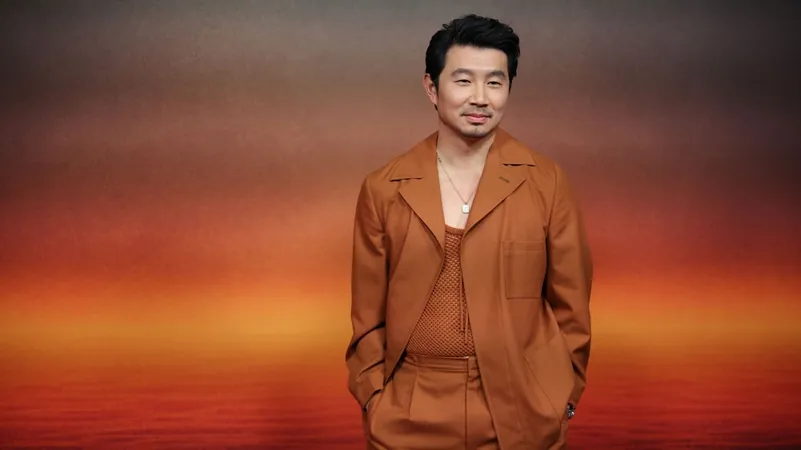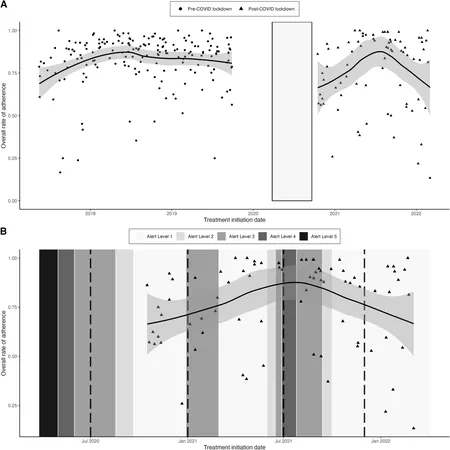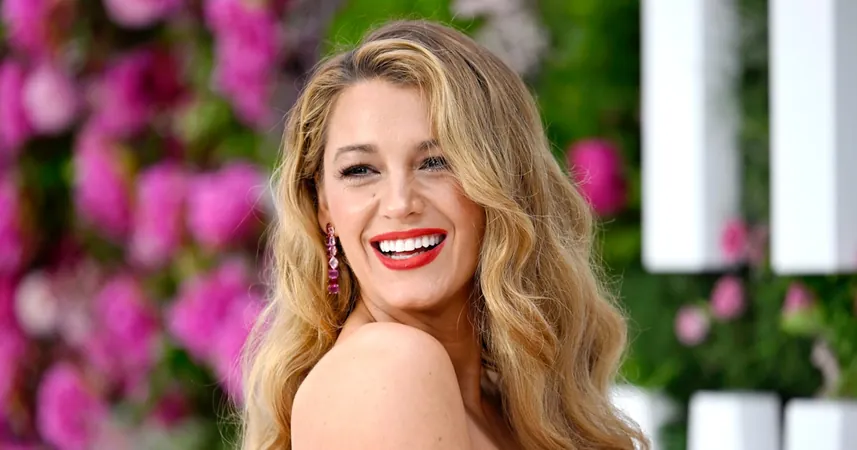
Simu Liu Sparks Cultural Appropriation Debate Over Canadian Bubble Tea Brand on "Dragons' Den"
2024-10-14
Author: Sophie
Controversy on 'Dragons' Den'
Controversy erupted on the set of CBC’s "Dragons' Den" when Canadian actor Simu Liu confronted the owners of a Quebec bubble tea company, Bobba, regarding claims of cultural appropriation during their pitch for investment. Liu, known for his role as Shang-Chi in the Marvel Cinematic Universe, raised critical questions about the cultural implications of the product they were presenting.
The Pitch and Tensions Rise
The episode featured Bobba’s founders, Sebastien Fiset and Jess Frenette, who aimed to secure funding to expand their bubble tea brand. Bubble tea, a beloved Taiwanese drink characterized by chewy tapioca balls, has seen a skyrocketing popularity in North America, leading many entrepreneurs to enter the market with unique twists.
Tensions surfaced when Frenette referred to bubble tea as a "trendy, sugary drink" and implied that consumers often are uncertain about its contents. Liu quickly interjected, asserting his confidence in the beverage's origins and prompting further discussion. Fiset claimed that Bobba was "disturbing" the bubble tea market by transforming the traditional drink into a "healthier" ready-to-drink option made from just a few ingredients.
Cultural Appropriation Concerns
Recognizing the potential issues with their language, Liu expressed his discomfort with the idea of "improving" something deeply rooted in Asian culture. He eloquently articulated his concern about cultural appropriation, emphasizing that presenting a distinctly Asian product in a commodified way can be problematic.
Representation and Response
When Liu inquired about the diversity of Bobba's staff, the founders mentioned their partnership with a Taiwanese recipe developer. However, Liu's concerns highlighted a critical aspect of representation within the brand, as he expressed a desire to support minority entrepreneurs rather than assist a business profiting from cultural heritage without proper representation.
Public Backlash and Apology
In response to Liu's decision not to invest, the exchange ignited backlash online, leading to both Liu and the Bobba founders addressing the harassment and threats directed at Frenette and Fiset. Liu took to TikTok to clarify his stance, stating that while he disagreed with many aspects of their pitch, he did not condone any form of harassment against them.
The aftermath of the episode saw Bobba issuing a public apology for their choice of words during the pitch. They acknowledged Liu's points on cultural appropriation as valid and stated their commitment to reevaluating their branding and marketing to honor the cultural roots of bubble tea.
Investor Decisions and Cultural Sensitivity
Interestingly, despite the heated discussions, the Bobba founders eventually struck a deal with fellow investor Manjit Minhas, who initially supported their product with an investment offer. However, following public discourse and reflection on the situation, Minhas later opted out, recognizing the importance of sensitivity towards cultural narratives.
Ongoing Conversations in Entrepreneurship
"Dragons' Den," which is based on a Japanese concept and has been airing for 19 seasons, continues to spark meaningful conversations around entrepreneurship, culture, and ethics in business. This incident serves as a reminder of the ongoing dialogue surrounding cultural representation in the marketing of global products and the responsibilities businesses have in maintaining respect for the cultures from which they draw inspiration.
Looking Forward
As the bubble tea market expands, the hope is that brands will commit to authentic representation and inclusivity as they navigate the complexities of cultural heritage in their business practices.









 Brasil (PT)
Brasil (PT)
 Canada (EN)
Canada (EN)
 Chile (ES)
Chile (ES)
 España (ES)
España (ES)
 France (FR)
France (FR)
 Hong Kong (EN)
Hong Kong (EN)
 Italia (IT)
Italia (IT)
 日本 (JA)
日本 (JA)
 Magyarország (HU)
Magyarország (HU)
 Norge (NO)
Norge (NO)
 Polska (PL)
Polska (PL)
 Schweiz (DE)
Schweiz (DE)
 Singapore (EN)
Singapore (EN)
 Sverige (SV)
Sverige (SV)
 Suomi (FI)
Suomi (FI)
 Türkiye (TR)
Türkiye (TR)